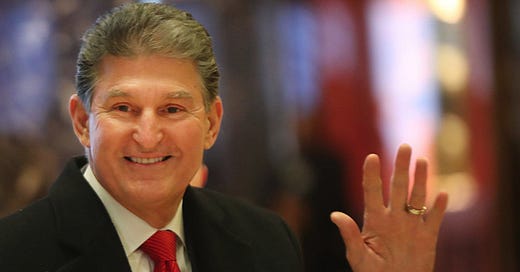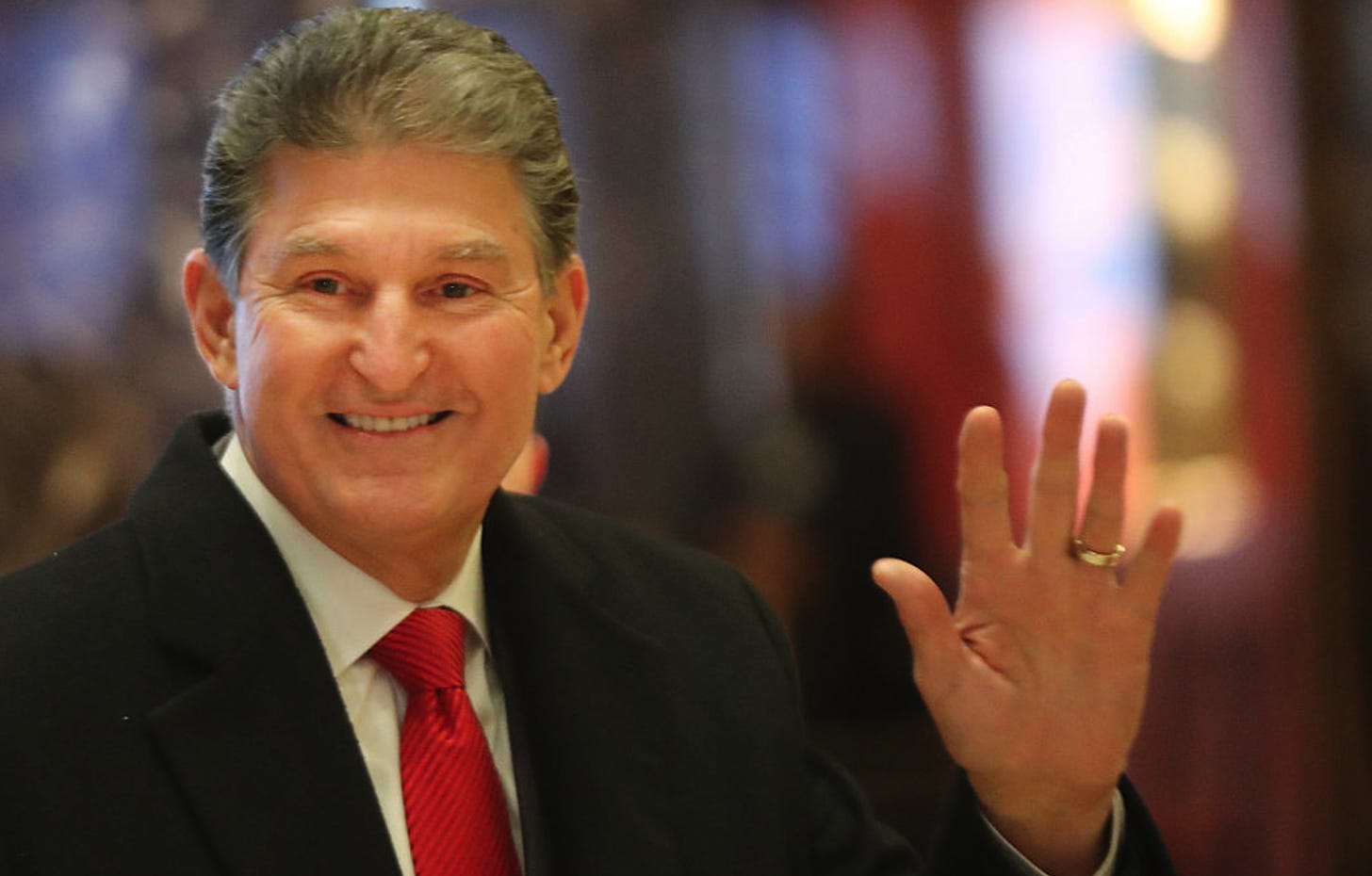Earthling: Joe Manchin’s dual threat to global cooperation
Plus: Forever War amps up; iconic insect endangered; Saudi fist bump pseudo-scandal; etc.
The United States has spent months rallying international support for a global tax deal, but now there’s one major country that may no longer be on board: the United States. Joe Manchin of West Virginia, who holds life-or-death power over much legislation owing to the Democrats’ one-vote majority in the Senate, is suddenly expressing opposition to the deal after previously signaling support, reports the New York Times.
The pioneering deal, involving 130 countries, would establish a minimum tax for corporations of 15 percent. That would complicate life for companies like AbbVie, a pharmaceutical firm that in 2020 made three-quarters of its sales to Americans but reported only 1 percent of its income in America, cutting its effective tax rate in half. In the long run, the global minimum tax could stem the “race to the bottom” that happens when countries competitively lower tax rates to attract big corporations.
Meanwhile, in addition to imperiling a global tax accord, Manchin is, according to some environmental activists, imperiling the whole planet. He nixed the climate provisions of a spending bill that Biden was hoping to get passed before the August recess.
And it’s far from clear that Manchin’s stance will bring much grassroots blowback. Only one percent of Americans in a recent New York Times/Siena College poll named climate change as the most important issue facing the country. According to an analysis of the poll in the Times, concerns about climate change have taken a back seat amid rising gas prices and economic uncertainty.
Last month the World Trade Organization lifted intellectual property protections around Covid-19 vaccines—but the move was too little and much too late, argues journalist Vidya Krishnan in the Atlantic.
It’s been nearly two years since India and South Africa asked the WTO for an IP waiver that would make it easier for developing nations to produce Covid vaccines and medicines. The final policy fell far short of the proposal—by, for example, leaving IP barriers around tests and treatments and around trade secrets about how to manufacture the vaccines. Krishnan blames zero-sum thinking and the power imbalance at the WTO. Developing nations were often sidelined during the negotiations, leading to an agreement that she calls “a bargain struck between lions and lambs.”
Yesterday I had a very illuminating conversation with political scientist and Russia expert Rajan Menon about ways the Ukraine war might end—and about some unfortunately plausible ways it might escalate. The conversation will go public next week, and paid newsletter subscribers can listen to it or watch it now.
As Raj and I drilled down on the complexities of this horrific war, neither of us felt optimistic about it ending soon. And both of us worry that the state of American discourse about the war isn’t helping things. Voices that warn about the difficulty of ever pushing Russia entirely out of Ukraine get little airtime, and this may restrict Biden’s political room for maneuver, making it harder for him to use American leverage to encourage peace talks anytime soon.
One thing I’m trying to do with my podcast is create a space for conversations you won’t hear in the mainstream media, and on this occasion I think we succeeded.
Ripples from the John Bolton coup controversy continue to spread across the globe.
Last week the former Trump aide, while being interviewed about the January 6th hearings, managed to steal some of the spotlight from his ex-boss. In the course of denying on CNN that Trump had engineered the storming of the capitol as part of a “carefully planned coup d’etat,” Bolton depicted himself as something of an authority on the subject: “As somebody who has helped plan coups d’etat — not here but, you know, other places — it takes a lot of work, and that’s not what [Trump] did.”
The CNN clip went viral, prompting considerable domestic coverage and leading at least one outlet to explore exactly which coups Bolton—who also served in the George W. Bush administration—might have been involved in.
Meanwhile, on the international stage, critics of US foreign policy seized the moment. And this week China’s Foreign Ministry Spokesperson had this to add:







